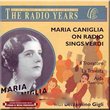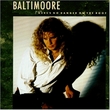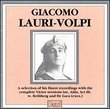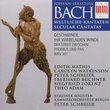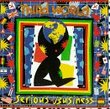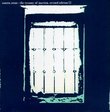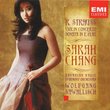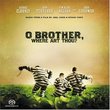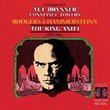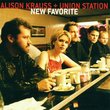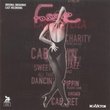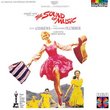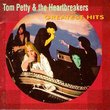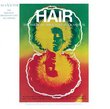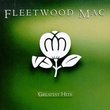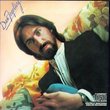| All Artists: Jerome Kern, Oscar Hammerstein II Title: Show Boat (1993 Toronto Revival Cast) Members Wishing: 0 Total Copies: 3 Label: Quality Video Original Release Date: 1/1/1994 Re-Release Date: 6/28/1994 Album Type: Soundtrack Genres: Pop, Soundtracks, Broadway & Vocalists Styles: Vocal Pop, Musicals, Traditional Vocal Pop Number of Discs: 1 SwapaCD Credits: 1 UPC: 063961025727 |
Search - Jerome Kern, Oscar Hammerstein II :: Show Boat (1993 Toronto Revival Cast)
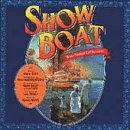 | Jerome Kern, Oscar Hammerstein II Show Boat (1993 Toronto Revival Cast) Genres: Pop, Soundtracks, Broadway & Vocalists
When this Jerome Kern (music) and Oscar Hammerstein II (lyrics and libretto, based on Edna Ferber's novel) show premiered in 1927 it powerfully changed the course of musicals by being about something: the sweep of 40 years... more » ![header=[] body=[This CD is available to be requested as disc only.]](/images/attributes/disc.png?v=15401716) ![header=[] body=[This CD is available to be requested with the disc and back insert.]](/images/attributes/disc_back.png?v=15401716) ![header=[] body=[This CD is available to be requested with the disc and front insert.]](/images/attributes/disc_front.png?v=15401716) ![header=[] body=[This CD is available to be requested with the disc, front and back inserts.]](/images/attributes/disc_front_back.png?v=15401716) |
Larger Image |
CD DetailsSynopsis
Amazon.com When this Jerome Kern (music) and Oscar Hammerstein II (lyrics and libretto, based on Edna Ferber's novel) show premiered in 1927 it powerfully changed the course of musicals by being about something: the sweep of 40 years of American history, racial tensions and relations (including miscegenation), even spousal and parental abandonment. It also featured some of the most splendid songs ever written for the legitimate stage, both building on the operetta and music-hall past, and presaging plot-advancement and character-development numbers (which took another quantum leap in Oklahoma). "Make Believe," "Why Do I Love You?" and "Ol' Man River" became standards almost at first hearing, and the production was a hit in spite of the controversy surrounding it. Show Boat suffered only from the lack of sophisticated recording techniques to preserve the original performances, although Helen Morgan (who played the mulatto Julie) later recorded her signature song "Bill." Three movie versions and countless stage revivals kept Show Boat alive and popular--although bowdlerized--for almost 50 years without a definitive recording. (The 1971 production, with Cleo Laine as Julie, came closest.) But it's all here, in the 1994 Toronto recording whose cast transferred almost intact to Broadway. It's a glorious rendering from start to finish, with Rebecca Luker and Mark Jacoby as good as any Magnolia and Gaylord Ravenal we're ever likely to hear. And, I'm sorry Helen and Cleo, but Lonette McKee's "Bill" (with lyrics by P G. Wodehouse) is the most wrenching rendition I've ever heard. --Robert Windeler Similar CDs
Similarly Requested CDs
|
CD ReviewsA wonderful, flawed recording 03/22/2004 (4 out of 5 stars) "Like the "Music Fan" who previously commented on this recording, I am also a theatre student specializing in dramaturgy, with an interest in musical theatre. And I happen to like this CD.Yes, any production of SHOW BOAT should take into account historical accuracy. And yes, there are anachronisms in this recording (there are also anachronisms in the original score). But I think it's important to recall that while SHOW BOAT's plot begins in 1887, it was of course written in 1927 -- and revived by Harold Prince in 1993. This is the story of America's transition from the 19th century to the 20th, as seen through the eyes of several generations of 20th century American artists. Kern and Hammerstein did not intend their work to be a museum piece about the 1880's, nor did Prince intend his revival to be a museum piece about the 1920's. SHOW BOAT, as critic Ethan Mordden points out, is a musical that must constantly be reinterpreted and rediscovered for each successive audience, and this 1993 recording reflects that thinking. For example, the character of Julie may have been written for soprano Helen Morgan to play, but subsequent revivals have cast a belter in the role, to endow Julie with an earthiness and a contemporaneity and to contrast her with Ravenal and Magnolia's operatic grandeur.The glory of Prince's revival, which won universal critical acclaim and a trunkful of Tonys, is that it gives SHOW BOAT its proper due as a great, groundbreaking work of American art, but it also acknowledges the problems inherent in the original book and production and tries to solve them. The character of Parthy, for example, was supposed to be a shrewish old spoilsport: that's tradition. But this production is about rediscovery, not tradition. Thus, Prince takes the song "Why Do I Love You?", originally a love duet between Magnolia and Ravenal, and reassigns it to Parthy to croon to the infant Kim. Elaine Stritch pulls it off superbly; with this brief number, she rescues the character from the trap of stereotype and turns Parthy into a complete person, full of wonder at her new role as a grandmother. Listen to Stritch's voice break with emotion as she sings "Maybe that's because you love me" -- it's a brilliantly human moment.The major flaw of this recording is that it includes almost no spoken dialogue, except for brief passages in "I Have the Room Above Her" and the Act Two Finale. Much of the orchestral underscoring is included, though, and this seems to make the gap in between the verses of the songs all the more obvious. This elimination, in my opinion, damages the overall quality, since we lose the transitional dialogue that helps us understand some of the more complex songs like "Can't Help Lovin' Dat Man" and "After the Ball." The former foreshadows how Julie will be exposed as a mulatto, and eventually be abandoned by her husband; the latter shows Magnolia discovering her own strength and identity, on the eve of the 20th century, by reconnecting with her family (Hammerstein's favorite theme). But without the dialogue, "Can't Help Lovin' Dat Man" and "After the Ball" devolve from complex musical scenes into rather simple showtunes.What's unfortunate is that the voices in this recording -- Mark Jacoby, Rebecca Luker, Robert Morse, Gretha Boston, Lonette McKee, and of course, Stritch -- are all well-rounded musical theatre performers with solid acting backgrounds. In particular, I wish I could have heard McKee use that rich voice to tackle the Miscegenation Scene. Certainly, these singer-actors could have handled the spoken sections better than do the glamorous opera stars of John McGlinn's comprehensive, if rather pompous, three-disc set.One thing about this recording that takes a bit of time getting used to is the tempo at which the music is conducted. Some of the numbers sound, I swear, like they're on fast-forward. The overture, for example, clocks in at a brisk 2:47. McGlinn uses the same arrangement, with only a few additional bars of music -- but his version lasts a whole two minutes longer. The up-tempo conducting endows the score with an unusual vitality, but sometimes obscures the moments of romance and serenity.But on the whole, the merits of this album far outweigh the flaws. I enjoy the 1993 SHOW BOAT recording very much, and recommend it to anyone who's seriously interested in the American musical theatre. Hope they bring it back into print soon; till then, have fun finding yourself a used copy." One of the best SHOW BOAT cast albums Byron Kolln | the corner where Broadway meets Hollywood | 08/16/2004 (4 out of 5 stars) "Hal Prince's epic revival of SHOW BOAT was a huge success in Toronto, and it quickly transferred to Broadway, spawning a national tour as well as productions in London and Australia. This cast album features the original Toronto company, headed by Rebecca Luker as Magnolia, with Robert Morse as Capt'n Andy, Elaine Stritch as Parthy, Lonette McKee as Julie and Michel Bell as Joe. This cast is simply sensational. This recording of SHOW BOAT is one of the more satisfying out of the myriad of cast albums that exist for this score. The Jerome Kern-Oscar Hammerstein score perfectly bridges the styles of opera, operetta and musical comedy to tell the sprawling tale of a troupe of river-players over a span of nearly 30 years. Orchestrations by William David Brohn (combined with the originals by Robert Russell Bennett) perfectly define the changing era's in the story. The cast also features Gretha Boston as Queenie, Joel Blum as Frank, Dorothy Stanley as Ellie and Tammy Amerson as Kim with Mark Jacoby as Ravenal. This recording is currently out-of-print because the company which bankrolled the revival (Livent) is no longer in operation." Great Teaser........ Enrique Sanchez | Los Angeles, CA USA | 08/29/2004 (4 out of 5 stars) "This classic American musical seems to have suffered from some curse, which has successfully prevented it from recieving proper recognition and also seems to have produced very few official "original cast" recordings for us to enjoy.
Obviously, I'm not serious about such curse, but in my opinion, this 1993 Canadian production highlights recording, is the latest "teaser" which only makes us Show Boat fans all the more curious. This recording is an excellent edition of the Jerome Kern legendary score. Though somewhat adapted to reflect changing ideals and delivery style, the score remains as faithful as possible to the original. The cast is absolutely perfect in all areas of performance art. I wish there was more of Robert Morse's Captain Andy, because the little snippets he recieves are only enough to want to hear more. Captain Andy has the fewest singing parts in the musical than any other character, which brings me to my next point. It's more than obvious, that Livent rushed the tempo here, in order to fit as much material possible into one single compact disc recording. Whatever the reasoning behind this, it's rather irritating upon making it's first impression. I purchased this recording many years ago at a local Tower records store and shut it off by the end of the first track, because I couldn't keep up with the incredibly fast tempo. I recall my sister and I looking at each other with our mouths wide open. Yes, it's that fast! Well, don't let this deter you from looking for a good used copy. This fast-forward-like tempo is limited to only a few tracks, mainly ensemble numbers, while the solos and duets are left unaltered. Sadly, it took me several years to finally discover the splendor of this recording upon giving it another try back in 1998. Since then, I've nearly worn it out. I had the pleasure of seeing this grand Harold Prince production back in 1996, when it's 1st national tour parked itself into the Ahmanson Theatre in Los Angeles. It remains my second favorite musical of all time and have since been waiting for an official full recording, with dialogue and original tempo intact. After Livent's misfortune, this is highly unlikely. Add this one to your collection at once! A must for any fan of great classic American musical theatre and a great teaser of a sampler for fans of this most neglected musical masterpiece." |

 Track Listings (22) - Disc #1
Track Listings (22) - Disc #1